About this item :
Sil Batta, Ammikallu, Ammikkal, Grinding stone. (Length – 12” Inch, Width 7.5” Inch)
- [Material] : Stoneware , Natural Stone
- [Sil Size] :– Length 30.5Cm (12” inch) , Width 19 Cm (7.5” inch), Thickness 5.1Cm (2”inch ) Weight 5 to 5.5 Kg.
- [Batta Size] : – Length 25Cm (10” inch) , Dia 7.6Cm (3” inch), Weight-1.5 Kg to 2Kg.
- [Sil Batta Country of Origin] : India.
- [Net Quantity (N)]: Pack Of 1.
- [100 Percent Natural Granite] : Sil Batta constructed from heavy duty granite to help it stay firmly in place without sliding; naturally nonporous with a long lasting surface for continuous use
- [For Many Ingredients] : the Sil Batta, mortar and pestle is a great option for nearly any ingredient; crush up spices and herbs; create homemade by grinding up nuts and seeds; serve up fresh ; even a great choice for homemade dressings and salsas; impress your entire guest list with the tastiest dishes ever.
- [Easy to Clean] : Sil Batta as this mortar and pestle is polished with a machine, utilize natural granite material, please wash before the first use to remove the granite powder on the surface
Sil Batta: A Time-Honored Culinary Companion for Authentic Indian Cuisine
The Ammikkal, an integral part of traditional Indian kitchens, is a culinary gem that embodies the essence of centuries-old cooking traditions. This humble yet indispensable kitchen utensil consists of two components: the “sil” and the “batta,” both carved from solid stones, usually granite or other hard rocks.
A Glimpse into History
The Ruvvakalu has an illustrious history that dates back centuries, serving as a testament to India’s culinary heritage. Its roots can be traced to ancient civilizations that recognized the value of freshly ground spices and grains. While the design and materials may have evolved over time, the core concept has remained remarkably consistent: a flat grinding surface and a cylindrical grinding tool.
Cultural Significance
The Ruvvakalu is not just a kitchen utensil; it is a symbol of culinary tradition and cultural identity in India. It is intimately connected to the preparation of spices and masalas, which are the cornerstone of Indian cuisine. The act of grinding spices in a Ruvvakalu is more than just a culinary technique; it is a sensory experience that evokes nostalgia and a connection to one’s roots.
Design and Components
The Sil Batta consists of two primary components:
- The Sil: This is the flat, rectangular stone on which the spices or grains are placed for grinding. It is usually sturdy and heavy, designed to withstand the force applied during grinding. The sil may vary in size, with some being compact for domestic use and others larger for commercial kitchens.
- The Batta: The batta is the cylindrical stone used for grinding. It is held by the user and rolled over the sil to crush and grind the ingredients. The shape and size of the batta make it easy to handle and control the grinding process.
Practical Utility
The Ruvaana’s practical utility in the kitchen is immense. It is primarily used for grinding spices and grains, such as cumin, coriander, peppercorns, rice, and lentils. Here’s how it works:
- Preparing Spices: Whole spices are placed on the sil. The user applies pressure and rolls the cylindrical batta over the spices, gradually breaking them down into a fine powder. This process releases the aromatic oils within the spices, resulting in a more intense and flavorful blend.
- Making Pastes: The Grinding stone is also used to create pastes from ingredients like ginger, garlic, and green chilies. These pastes serve as the base for many Indian dishes, imparting their unique flavors and pungency.
- Grinding Grains: In addition to spices, the Ataṇ is employed for grinding grains like rice and lentils. This fresh flour is used to make a variety of Indian bread, such as chapati and dosa, ensuring the quality and freshness of the final product.
The Sil Batta Ritual
Using a Sil Batta is an art in itself. It requires finesse, precision, and patience. The amount of pressure applied, the speed of grinding, and the duration all impact the texture and flavor of the final product. Experienced cooks often develop their unique techniques, handed down through generations.
Benefits of Using a Ammikallu
While modern kitchen appliances have made cooking more convenient, the Ammi offers several advantages that keep it relevant:
- Flavor Preservation: Grinding spices just before use retains their essential oils and flavors, resulting in richer and more aromatic dishes.
- Texture Control: Users have precise control over the coarseness or fineness of their ground ingredients, ensuring the desired texture in recipes.
- Nutritional Value: Grinding grains in a Ammikallu preserves the nutritional value of the grains, as there’s no heat generated during the process.
- Eco-Friendly: The Ruvaana is an eco-friendly kitchen tool, as it requires no electricity and produces no waste.
Available on Amazon
Please Visit More Product

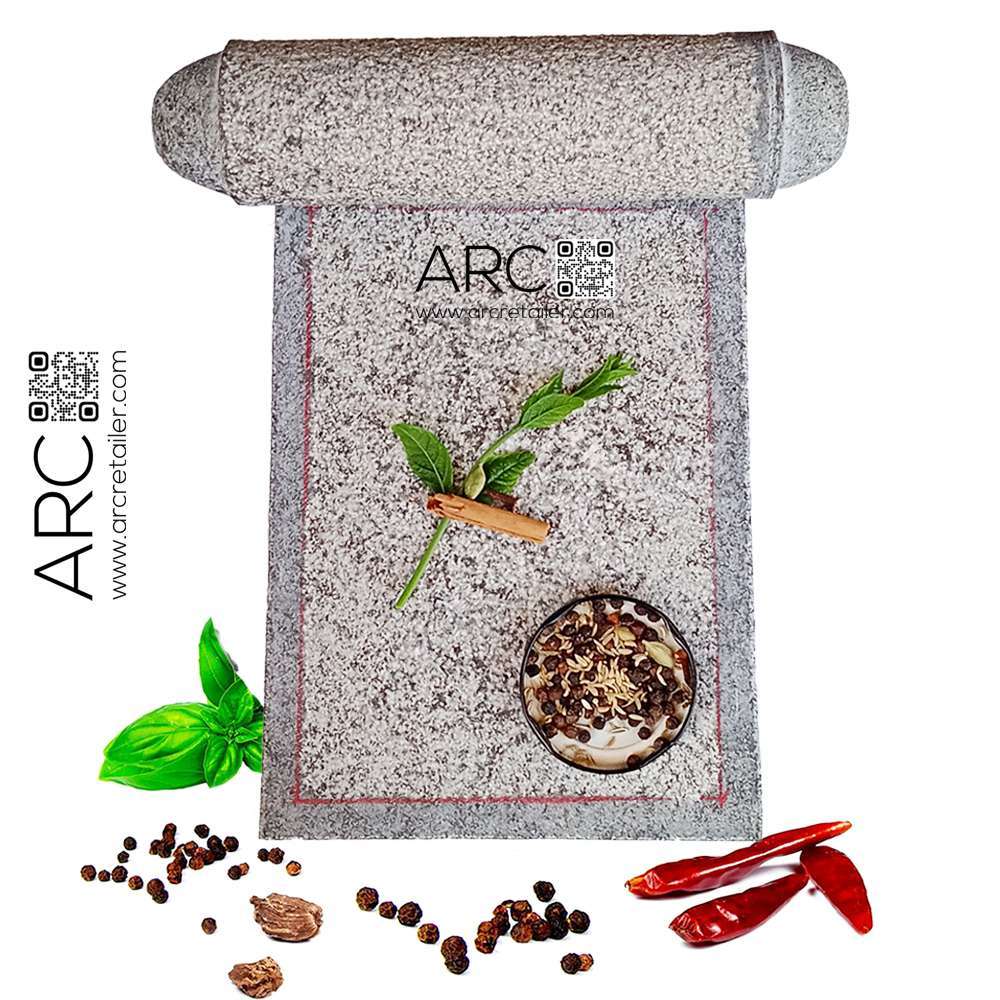
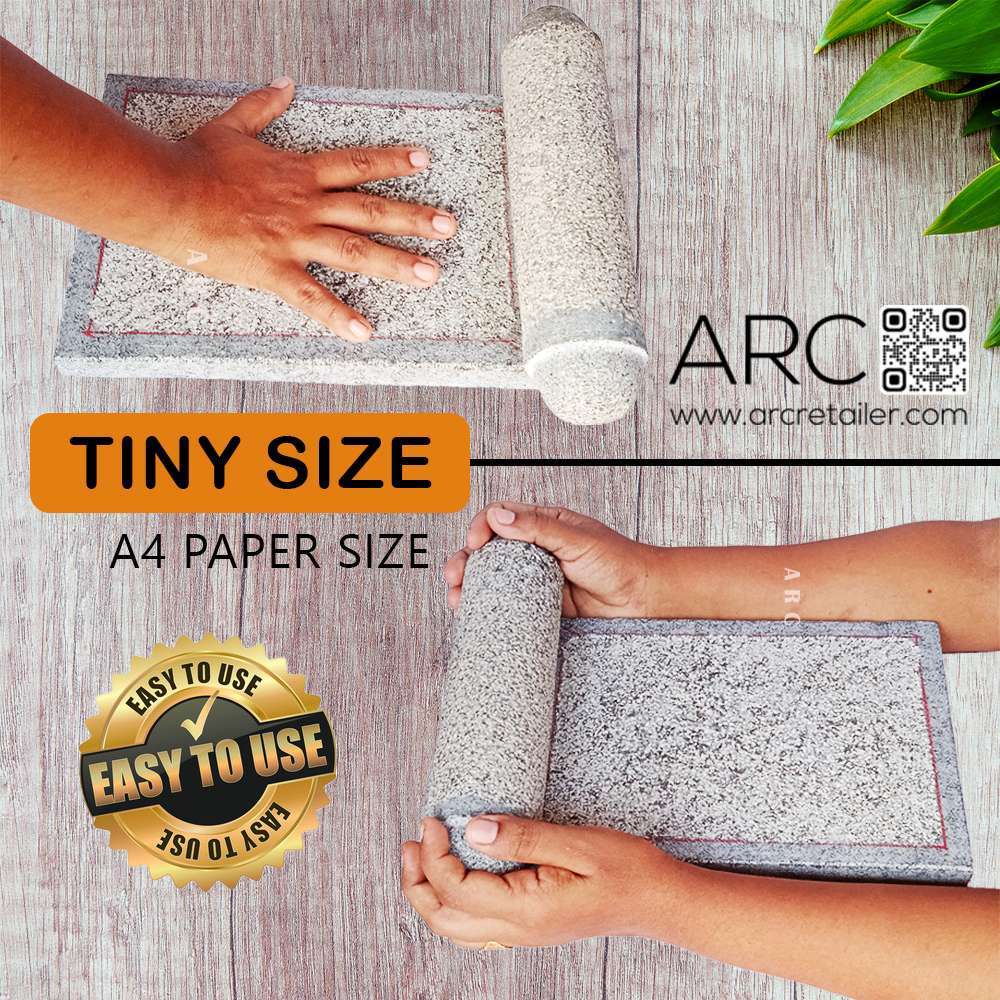
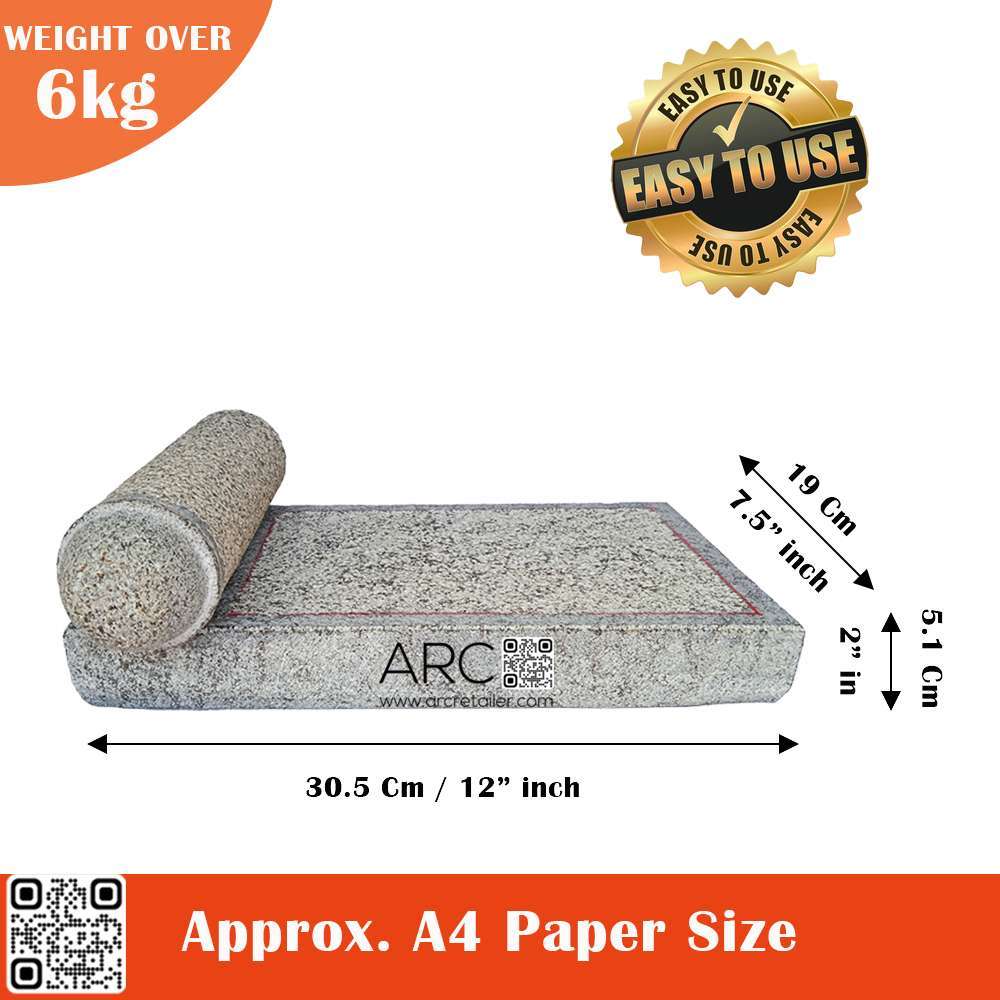
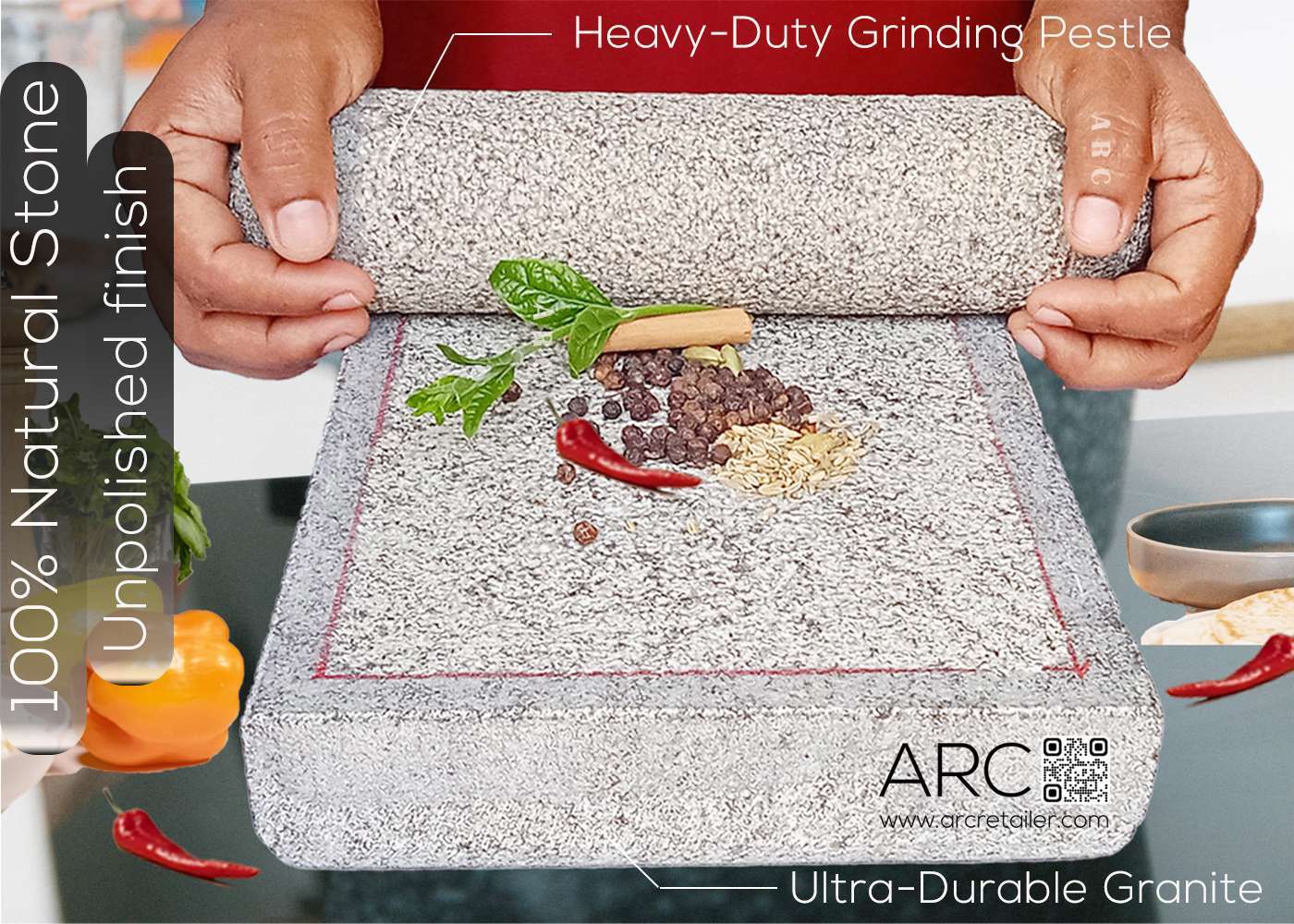
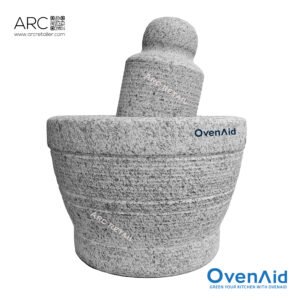
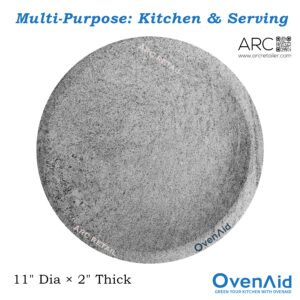
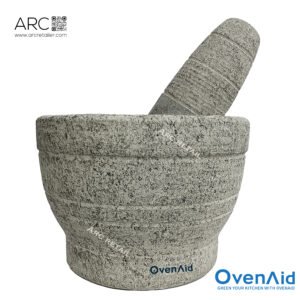
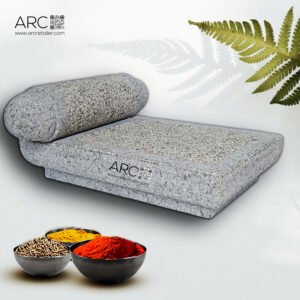
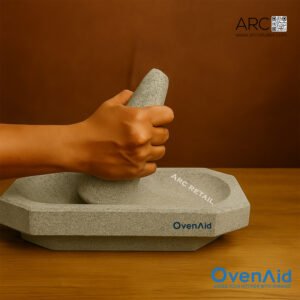
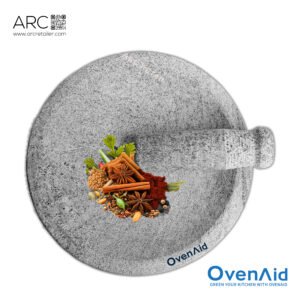
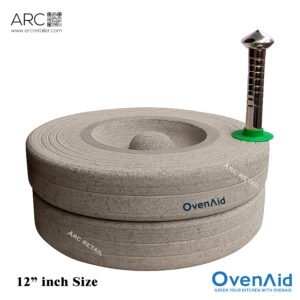
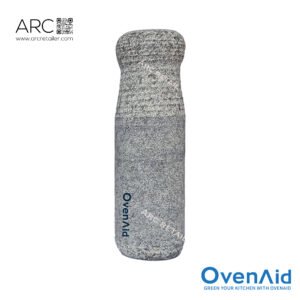
Reviews
There are no reviews yet